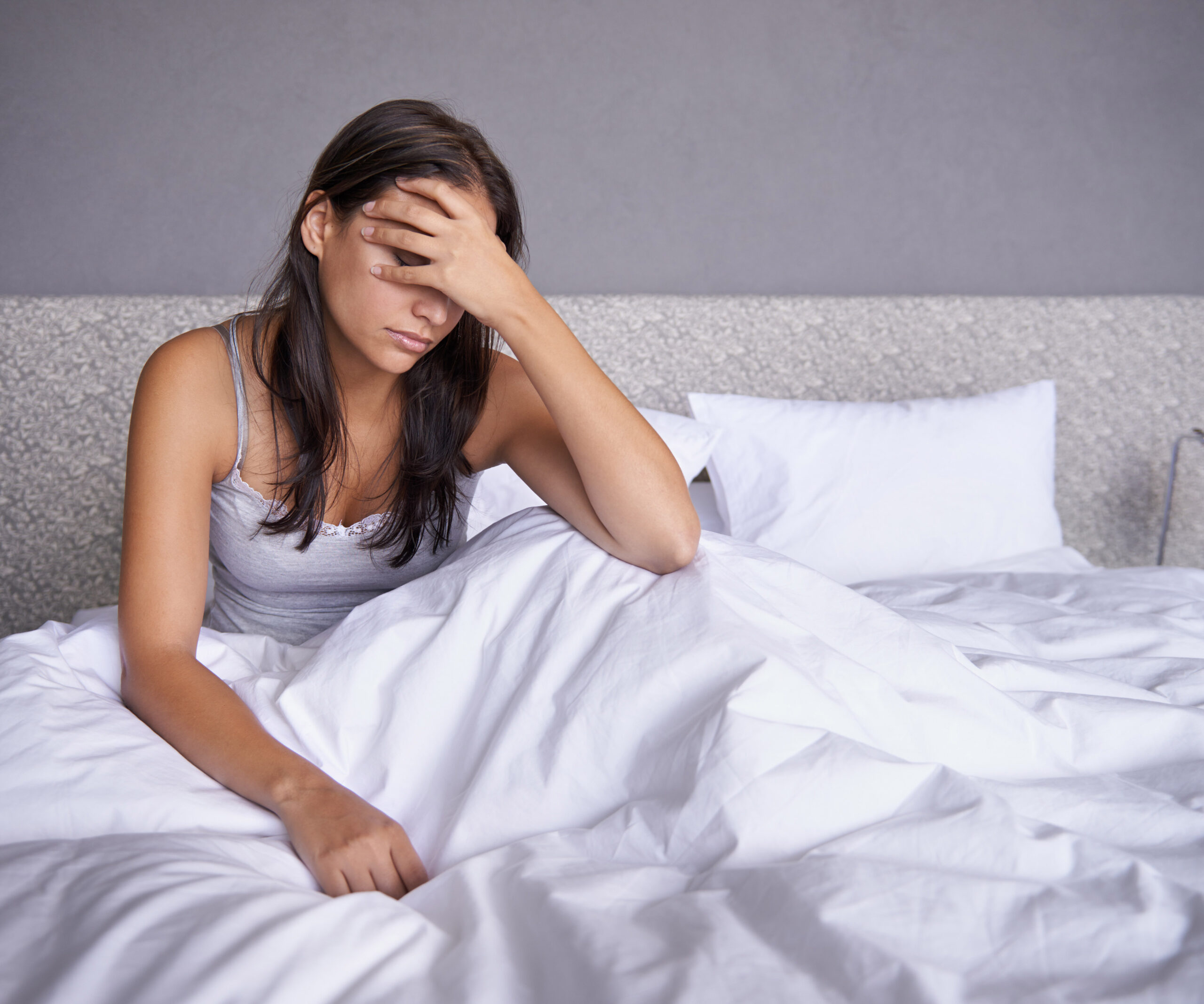Ever find yourself mindlessly rubbing your temples in a bid to ease the pain of one almighty, brain-pounding headache?
Well, you’re not alone; the World Health Organization estimates that almost half the adult population have had a headache in the last year.
Although, the inconvenience of it aside, did you know that this sometimes-thumping wave of pain could be your body’s means of telling you something’s not quite right?
Here, we break down what causes the three most common primary types of headaches, what the symptoms of these headaches are and how you can even alleviate your headache the natural way.
Because when there are bills to pay, Friday night drinks to be had and Downton Abbey reruns to be watched, ain’t nobody got time for a headache…
Headache types and what they mean
Tension headaches
According to Headache Australia, a tension-type headache – a dull, persistent pain on both sides of your head – is the most widespread headache disorder and, across the world, impacts more women than it does men.
What causes tension headaches?
This type of headache can be brought on by stress, eye strain (think prolonged periods of reading or using the computer), dehydration as well as poor posture at work or while driving.
Not only that but bright lights, loud noise and fatigue can trigger a tension headache.
What are the symptoms?
Got a stiff neck, are struggling to focus and have a blunt, constant pain on both sides of your head or neck? You may have a tension headache.
Other symptoms of this headache include a constant, pressing sensation around your head, sensitivity to light and noise, as well as nausea and indigestion.
How do I treat a tension headache?
While there’s no precise test to determine whether you’re suffering from a tension-type headache or not, you can reduce your symptoms, or the likelihood of suffering from this headache in the first place, by striking a balance between your work and personal life, getting enough sleep each night and exercising regularly.
Also, whether you’re at home or at work, try dabbing a few drops of super-soothing peppermint oil to your temples, forehead and wrists; this is an au natural method that may help calm your mind and alleviate your headache.

Elle MacPherson tries to minimise the likelihood of her headaches reoccurring with alternative therapies like acupuncture.
Migraines
Fact: the classic “I’ve got a migraine” line when calling in sick may not work on your average boss (no, really – there’s a British workplace study to prove it).
Although, for those who do suffer from migraines, they’ll understand that taking a sick day to stave off the blurred vision and face numbness this headache can bring is more than worth it.
What causes migraines?
Experts are yet to zero in on what exactly causes migraines, but, as Better Health Victoria claim, this type of headache may be an inherited condition.
But what triggers a migraine is a different story. We know that too much or too little sleep, a woman’s menstrual cycle, stress and even fatigue can elicit a migraine.
Foods like cheese, chocolate and alcohol, specifically red wine (sigh), have also been known to set off a migraine. The same goes for too much heat, noise, light and certain chemicals.
What are the symptoms?
Differing from the tension headache, a migraine can impact your vision, heighten your sensitivity to smell, tough, light and sound, cause vomiting or nausea, and make your face, hands and feet feel numb.
How do I treat a migraine?
Despite their being no cure for migraines, especially considering they can affect people in very different ways, it’s hard to lock down one treatment for all.
Basically, those who suffer from migraines can try avoiding things they know trigger their headaches by taking a closer look at what they’re eating and drinking; medication prescribed from a doctor and; alternative therapy like yoga and meditation, and other homeopathic and herbal remedies.

New mum Serena Williams says she has suffered from menstrual migraines for years.
Cluster headaches
If you’ve ever had a cluster headache, you’d know they can be extremely painful and sometimes even more severe than a migraine.
While a cluster headache may not last long (usually for up to an hour at a time) they can strike every day at the same time over a period of time, lasting as long as three months, before easing up.
This type of headache is often described as causing a severe searing sensation on one side of the head (typically around the eye or temple).
What causes cluster headaches?
Cluster headaches have had medical experts stumped for years; the cause of them has never been determined. However, medical experts in the UK argue that these ‘attacks’ can often be triggered by strong smells, drinking alcohol and even smoking.
Cluster headaches, in some cases, have been linked to genetics and can reoccur over and over throughout someone’s life.
What are the symptoms?
When someone is hit with a cluster headache, the affected eye can water, and the eyelid may droop and swell. If you take a closer look, this eye may also have a smaller pupil.
What else to look out for? A sweaty face, and a blocked or runny nose.
How can I treat a cluster headache?
First and foremost, if you are experiencing any of these symptoms, seek medical advice immediately. Doctors will then be able to prescribe a treatment that works best for you (think behind-the-counter medication, sumatriptan shots or oxygen therapy).

While directing the movie Gone, Baby, Gone back in 2006, Ben Affleck said he had a migraine so painful, he was later admitted to hospital.
When to seek professional advice
Because headaches can be triggered by myriad health and lifestyle factors, there are numerous ways to keep that brain-clenching pain at bay. Just be sure to consult your doctor for medical advice on how to treat your headache.
If your headache comes after a head injury, is accompanied by blurred vision, difficulty speaking, vomiting or fever, be sure to seek medical attention immediately.
This is a sponsored article.


